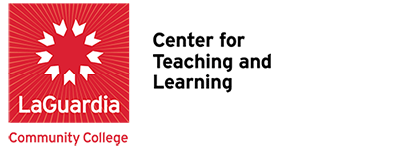 June 15, 2020
June 15, 2020
Lara V. Kattekola, English 101 (Composition) and LIF 101 (First Year Seminar: Liberal Arts Social Sciences)
The fragility of potential
The gap between the proverbial “haves” and “have-nots” underlying all aspects of society has been brought into its sharpest relief for me this semester, with more intensity than I previously experienced in my six years at LaGuardia. Though I can’t speak directly to students’ day-to-day lives, I easily sense the camp in which my students have the bad or good fortune to reside.
Those rooted in the “haves” group reveal, in ways both nuanced and obvious, their longtime cultivation of a myriad of skills that accompanied their arrival to LaGuardia. These skills are not limited to time management, reading, and writing but extend to self-confidence and proactive mindsets. On the other hand, their “have-not” peers make explicit a lack of such skills through missed assignments and silence on email, Blackboard, and Zoom.
Many of my students are first-time/first semester LaGuardians, and when I think of their brave initial step taken in a new journey begun in early March, I am reminded of the fragility of potential. In a series of devastating waves, the tsunami that is Covid19 has swept away so many hopes and aspirations. Perhaps, in the near or far future, some students affected by the pandemic will begin again the trek into higher education. But I wonder about the others, those whose lives illustrate the ongoing relevance of Langston Hughes’s “A Dream Deferred.”
Information Overload
This semester I became increasingly concerned with how students are processing coursework and course materials via distance learning and via online platforms. I could not provide paper handouts and course materials as I normally would; instead, I needed to produce digital content overnight.
But as the semester wore on and drew to a close, I wondered how well my students were actually absorbing what I believed to be relatively easy reading and class content. My attention to students’ struggles with online reading sharpened when a very bright student completely misinterpreted an article that she would have easily understood had it been introduced in our f2f classroom. Later, in a short Zoom session in which we unpacked the title and subheading, she suddenly began to understand the article more accurately. The result was dramatic—so much so that I repeated our process with the entire class in our next Zoom session, which many found very helpful.
This experience in “distanced” teaching and learning revealed to me how overwhelmed students can be when all of the course content is visual and digital, when materials aren’t held in one’s hands or discussed collectively in small or large groups as we do in a typical f2f classroom. I’ve gained insight into how to think and what to do so that my course content and materials are delivered in chunks that students find more manageable and less overwhelming and intimidating.
To expect students to read an article online after watching my narrated PowerPoint on thesis statements and then post a reflection about the article on Blackboard’s discussion board may be a lot more challenging than I previously thought. The challenge is heightened when students are doing similar work in quick succession in all of their courses, often via diverse online platforms. Even for the most tech-literate, visually-oriented students, such circumstances may cause an information overload that creates confusion and misinterpretation rather than confidence and learning.
As I think ahead to the next semester, a mantra now resonates in my mind: Less is more. And diving deep is best.


